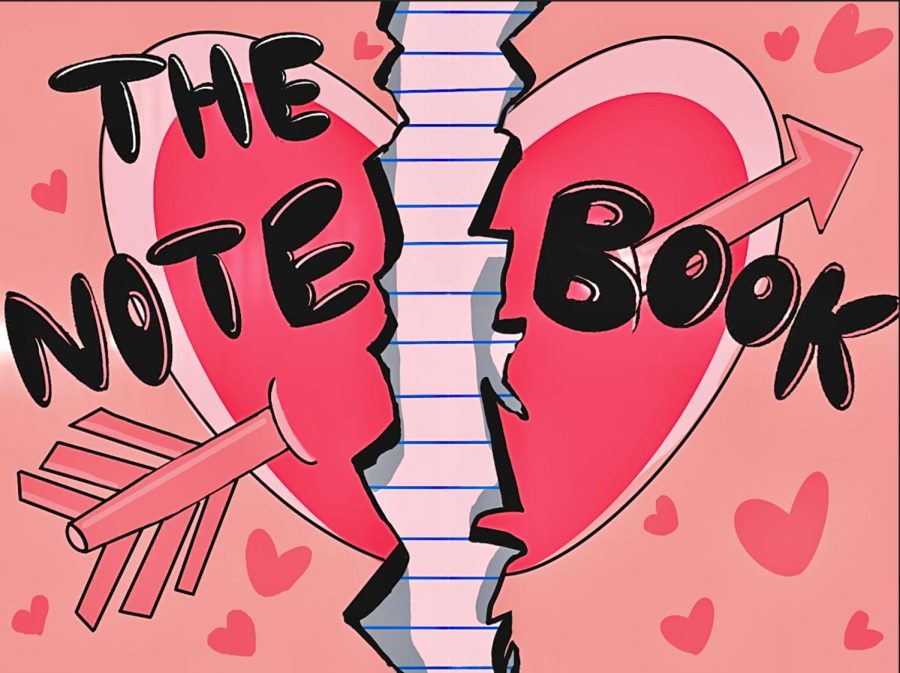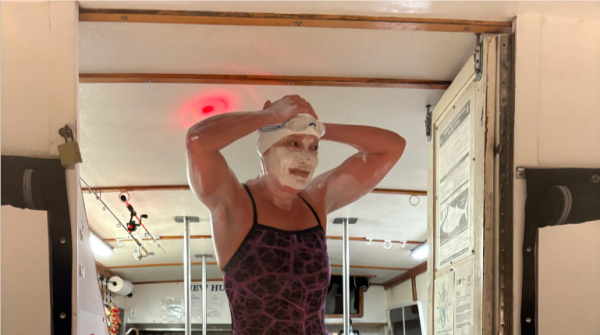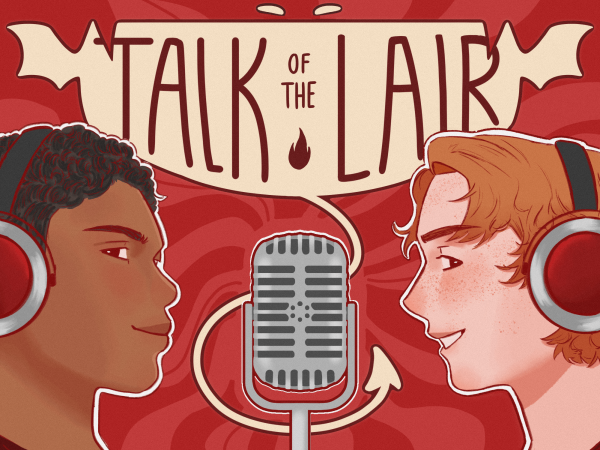Satire: Ripping out pages of “The Notebook”
Writer Linda Manzo gives a scathing review of classic romance film “The Notebook.”
February 15, 2023
Riddled with infidelity, romanticization of social class hierarchy and the encouragement of hopeless desperation, Nicolas Sparks’ “The Notebook” is a horrid demonstration of what romance should look like. The film adaptation of the novel begins whimsically with narration from lead character Noah Calhoun (Ryan Gosling and James Garner) stating, “I’ve loved another with all my heart and soul and for me that has always been enough.” Opening with a sentimental elderly man reflecting on his time spent with his wife, the movie seems to have a picture-perfect beginning. As the lovers Noah Calhoun and Allie Hamilton (Rachel McAdams and Gena Rowlands) meet at the fair during Allie’s pre-planned date with another young man, the film begins with their apparent issues.
Introducing himself to Allie, Noah hangs from a ferris wheel, proclaiming that if she doesn’t agree to go on a date with him, he’ll let go, maiming himself while placing others in danger. His true personality is never shown, as he continues to remind Allie that he will become whatever she desires, discarding his own identity. Though his personality is interchangeable, his social and economic statuses are not. Noah is of the lower middle class — a disgrace in the mind of Mr. Hamilton, who believes his daughter should be dating someone of the same status. Though Noah is unsure of himself, his love for Allie is true. As he cares for her through her battle with Alzheimer’s, his opening statement of his undying love for his spouse remains honorable.
One of the most “romantic” moments during their summer fling occurs at the beach, where Noah claims that “if you’re a bird, I’m a bird,” continuing the narrative that he is solely portraying what he believes Allie would respond best to. She continues to carry on the belief that Noah is practically perfect for her, mostly due to his constant personality alterations.
The most striking part of Allie’s character is not her sense of old money or even her resilient personality: it’s her constant and confident infidelity. As Noah and Allie have their brief yet romantic summer fling during her vacation, there is a boyfriend back home that goes unnoted in the film and briefly mentioned in the novel.
Allie’s struggles with loyalty begin in her adolescence and thrive during her engagement to Lon Hammond (James Marsden). Her engagement to a man that meets her social standards seems as though it is not enough for her, as her heart still lies with her teenage romantic interest. She travels back to Noah’s hometown to the house he built in her honor, proclaiming her engagement yet leaving a feeling of longing.
Upon seeing Noah’s feature in the newspaper next to Page Six announcing Allie and Lon’s engagement, Allie decides to put herself back into Noah’s narrative. The striking image was of Noah’s house that he built, replicating Allie’s dream home. This may have been ridiculously romantic if the couple had not broken up over a decade prior. Since their departure, it’s just bizarre for Noah to continue to fulfill Allie’s wishes.
Noah and Allie’s love story is a demonstration of the false advertisement of romance. The only undeniably romantic aspect of the entire film is the ending, in which their love takes them into the afterlife together. The power of their relationship and love for each other is so wholehearted and beautiful that it is able to peacefully grant them both an eternity of companionship.
















